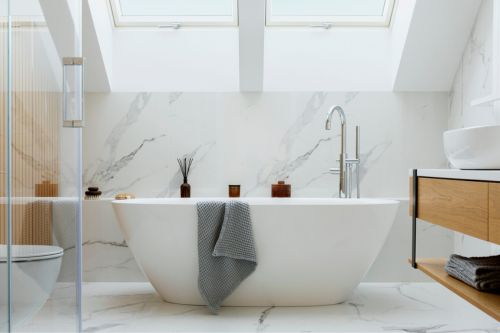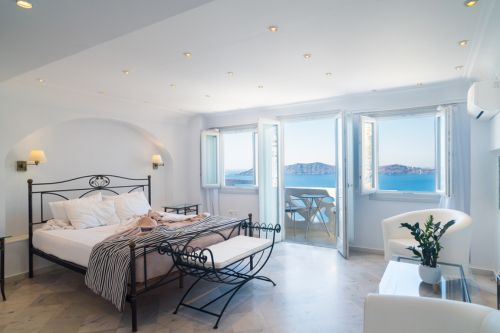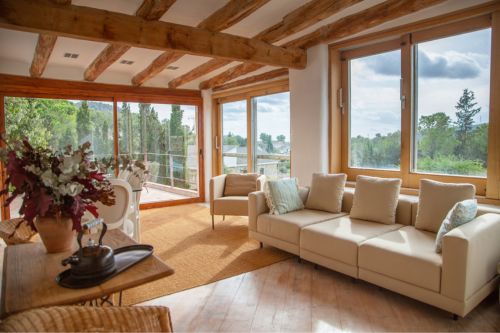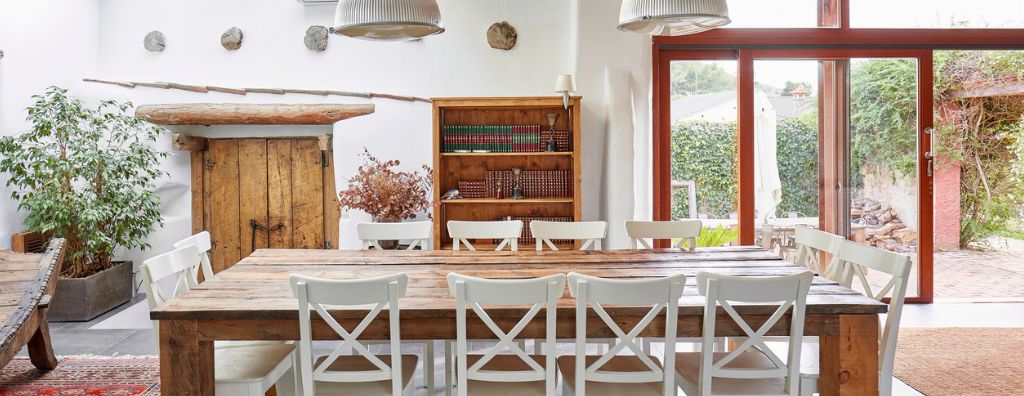There’s so much beauty in the countries that border the Mediterranean Sea, it’s no wonder the design style derived from this area of the world has the same effect on a home’s interior. Mediterranean interior design, part of the larger coastal design family, creates interiors that harmonize with the outdoors. Here are a few of its most common features.
5 Features of Mediterranean Interior Design
1. Mediterranean Materials
This style borrows primarily from the longstanding traditions found in Greece, Spain, and Italy, with additional influence from Mediterranean countries like Morocco and France. People have lived in this area of the world for thousands of years, each civilization attaining high levels of achievement in art and culture. Accordingly, the common materials that make up this interior design style show a timeless appeal. Dark wood, marble, or terra cotta tile are popular flooring choices, while the walls are typically made of stucco or plaster.

Mediterranean interior design bathroom | Image Source: Getty Images – Image Credit: FollowTheFlow
2. Mediterranean Color Palette
Prepare to be inspired. The colors found in a typical Mediterranean palette are tailor-made to make your interior come to life. Each hue is a rich variation of the colors we’re most familiar with in interior design. Golden yellows, olive greens, rich reds, and cobalt blues form the basis of the Mediterranean style. These colors all pop against a white stucco backdrop and evoke liveliness while being grounded in natural and organic elements like the sun, trees, and water.

Mediterranean interior design bedroom | Image Source: Getty Images – Image Credit: amriphoto
3. Harmony with Nature
The ultimate Mediterranean interior is at one with nature; it’s somewhere you can walk around barefooted while a gentle breeze blows through the room. From its exposed wood beams to natural stone walls, everything about Mediterranean interior design embraces the outdoors and the elements derived from it. Open-air patios are often the central entertaining space, putting an emphasis on indoor-outdoor living.

Mediterranean interior design living room | Image Source: Getty Images – Image Credit: Julieanne Birch
4. Mediterranean Decorative Elements
Overall, Mediterranean design takes a less-is-more approach to home décor. Relying on the natural beauty of its elements, its philosophies on design have more in common with mid-century modern interior design than, say, eclectic style. Common decorative items include textured walls, tapestries, mosaic inlays, and Italian-style pottery and art. The countries that form the inspiration for Mediterranean style all have their unique take on sculpture art, commonly found in historical buildings and traditional architecture. Accordingly, sculpted detailing is a fitting décor feature in this style.
5. Bringing People Together
At the end of the day, people are an important part of Mediterranean interior design. Family spaces are a priority, as are communal seating arrangements in areas like the living room, dining room, and outdoor patio. Once you design your home this way, you can’t help but invite family and friends over to celebrate together. The open spaces and natural elements create a welcoming environment that is meant to be shared. Happy hosting!
For more information on home décor, read our blog post on contemporary interior design and how it differs from the modern style:
Featured Image Source: Getty Images – Image Credit: xavierarnau
 Facebook
Facebook
 X
X
 Pinterest
Pinterest
 Copy Link
Copy Link
